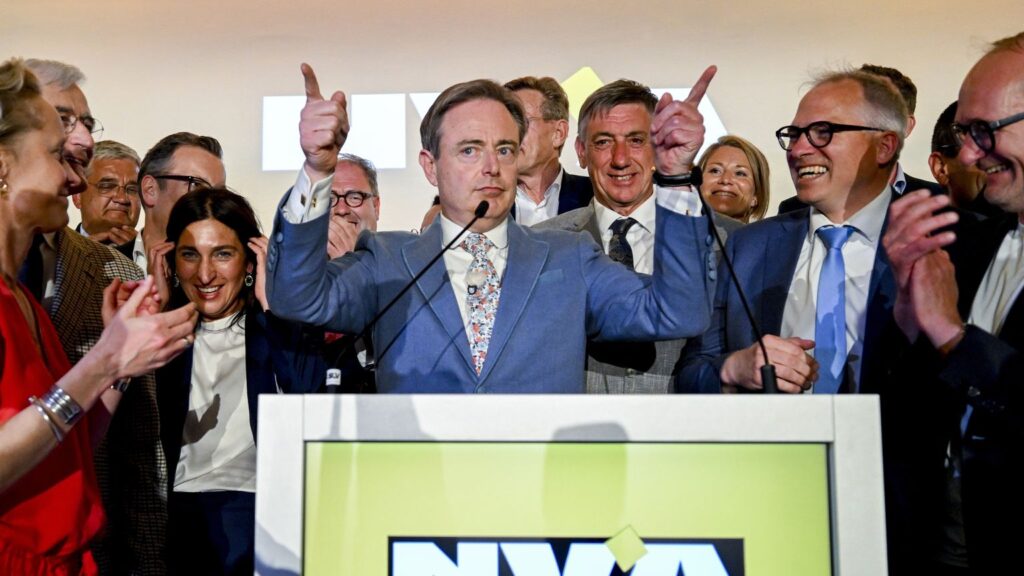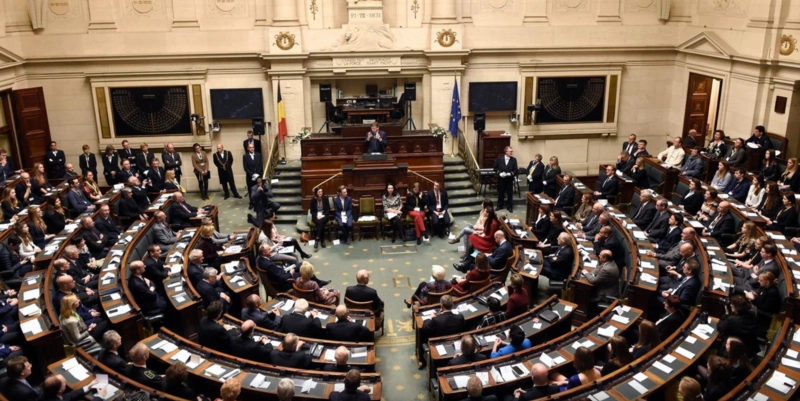The recent Belgian elections yielded some unexpected results.
While Vlaams Belang‘s (far-right) dominance in Flanders seemed definitive, the New Flemish Alliance (N-VA, Flemish nationalists) remains the largest party in the region.

“In Wallonia, there has been a political earthquake, with MR (liberals) surpassing PS (socialists) for the first time,” notes Naomi Cambien, Policy expert in transportation at Bond Beter Leefmilieu (BBL), to Mobility Portal Europe.
In this regard, she asserts that “it is quite clear and certain” that MR and Les Engagés will establish themselves in the south, while N-VA, Cd&v, and Vooruit will do so in the north, initiating negotiations for the next federal government together.
What does this mean for electromobility?
Should N-VA prevail, their desire is to postpone the phase-out of combustion engines from 2029 to 2035, a move that the European Union (EU) might also consider.
Following the recent elections to the European Parliament, the European People’s Party (EPP) has emerged as a central player, strengthening its influence in the chamber.
This concerns the sector, as according to Cambien, “there is explicit intent from the EPP to review the phased elimination of internal combustion vehicles as soon as possible.”
In this context, Jens Gieseke, a member of the EPP, told local media: “Reversing the ban on petrol and diesel engines was one of our main demands in the electoral campaign.”
Therefore, Cambien insists that, in Beligum, it will be the responsibility of the other negotiating parties to push for ambitious measures.
Among these, she suggests tax shifts, reform of circulation taxes, and a social leasing program for small electric cars.
Belgium has made a notable effort and change in recent years regarding the eMobility transition.
In one year, 36,000 new public charging points were added, totaling approximately 72,000 stations by the end of June.
At the same time, there has been a positive trend in passenger vehicle sales: one in every four new cars is now electric, confirms EV Belgium.
In this context, the association urges various political levels to make clear decisions and only allow zero-emission cars and vans into traffic from 2030 onwards.
To reduce the climate and health impact of the mobility system, BBL emphasizes the importance of maintaining the 2021 tax reform for company cars.
It is also crucial for regional governments to take action on electrifying the private car fleet and deploying charging infrastructure.
“However, enthusiasm does not seem to be very high,” emphasizes Naomi Cambien.
When are the results of the Belgian elections expected?
Currently, five parties are discussing a coalition in the country.
At the request of King Philippe, Bart De Wever, leader of the N-VA, will have until July 10 to investigate the future government coalition, which will only begin negotiations once the King formally appoints a formateur.

It is worth noting that the selection of the country’s last Prime Minister, Alexander De Croo, took 16 months.
What distinguishes this year’s formation process is the pressure exerted by Europe.
The European Commission has rebuked Belgium for violating the continent’s budget rules, as the country faces a budget deficit of approximately 4.5 per cent.
As a result, the new government will need to implement cuts worth 30 billion euros, which could directly impact the promotion of electromobility.
In this context, representatives of eMobility Consultants tell Mobility Portal Europe that short-term priorities will be addressed in the 2025 budget debates.
Therefore, forming coalitions and establishing negotiation teams “are crucial steps.”
This is because working groups composed of party delegates will be created to discuss and develop policies.
“Finalizing the government agreement, including detailed ‘atoma notebooks’ for tracking commitments, is a key focus,” assures the association advising businesses, institutions, and governments on all common issues faced during the energy transition.








